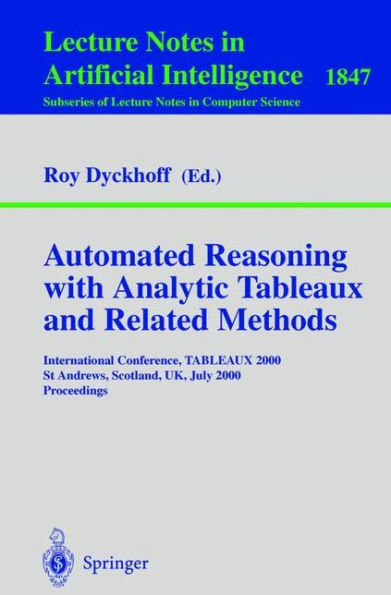Home
St. Andrew's American Revolution: The Story of Scotland and Her Sons and the Genius of American Government
Barnes and Noble
St. Andrew's American Revolution: The Story of Scotland and Her Sons and the Genius of American Government
Current price: $15.99


Barnes and Noble
St. Andrew's American Revolution: The Story of Scotland and Her Sons and the Genius of American Government
Current price: $15.99
Size: OS
Loading Inventory...
*Product information may vary - to confirm product availability, pricing, shipping and return information please contact Barnes and Noble
St. Andrew's American Revolution reveals the Founding Fathers' vision of the U.S. Constitution and returns Constitutional scholarship to the Scottish Whig philosophy that fueled the fire of revolution in the early American colonies.
Americans often confuse and co-mingle the terms British and English, which has today given a complete misinterpretation of the American founding. "The Rights of Englishmen" did not exist until 1689 and only then existed because the Glorious Revolution of 1688 brought a bill of rights to Britain - not merely England.
The British Bill of Rights continued a centuries long Scottish tradition of the rights that had only been experimented with in England in the 1640s before the English rejected republicanism and established Oliver Cromwell's authoritarian rule.
The present idea that the top-down, divine-right monarchy of England somehow birthed a Federalism of devolved power to protect the rights of the people rather than the rulers is absurd.
This book illustrates the Founders' understanding of the birth of the United States and explains the historical context and understanding they used to write the Declaration of Independence and the United States Constitution.
St. Andrew's American Revolution corrects the errors introduced into Constitutional interpretation by early English authors, post-civil war political hacks, 1880s propagandists for corporations and big labor, early 1900s Marxist Charles Beard, and modern-day atheists.
Any American who has wondered why constitutional interpretation by "experts" seems to have nothing to do with the words written in the U.S. Constitution will find this book a must read.
Find out -
•What the founders really thought of English Government and why they were adamant during the Constitutional Convention that the government in London not be duplicated in the United States.
•What James Madison, Jr. really thought of people like Scottish anglophile David Hume and French Baron de Montesquieu.
•Why German immigrants from Pennsylvania fought but the ones from South Carolina did not.
•How one act by John Jay shows concisely how the present-day American Government is operating outside the bounds of the U.S. Constitution.
•Why no one can fully understand the Constitution without understanding the difference between "compact" and "contract" as illustrated by Madison's words to Luther Martin in the Constitutional Convention.
•Why the difference between the words "compact" and "contract" means it is more important that every constitutional scholar know the names of Buchanan, Fletcher, and Witherspoon instead of Hobbes, Hume, and Hamilton.
•Why James Wilson's words at the Pennsylvania ratifying convention comprise the greatest lie told in the history of American politics, were subversive, and border on treason.
•Why before the revolution John Calvin was considered the father of the country.
Americans, historians, and political theorists will all benefit from reading St. Andrew's American Revolution.
Americans often confuse and co-mingle the terms British and English, which has today given a complete misinterpretation of the American founding. "The Rights of Englishmen" did not exist until 1689 and only then existed because the Glorious Revolution of 1688 brought a bill of rights to Britain - not merely England.
The British Bill of Rights continued a centuries long Scottish tradition of the rights that had only been experimented with in England in the 1640s before the English rejected republicanism and established Oliver Cromwell's authoritarian rule.
The present idea that the top-down, divine-right monarchy of England somehow birthed a Federalism of devolved power to protect the rights of the people rather than the rulers is absurd.
This book illustrates the Founders' understanding of the birth of the United States and explains the historical context and understanding they used to write the Declaration of Independence and the United States Constitution.
St. Andrew's American Revolution corrects the errors introduced into Constitutional interpretation by early English authors, post-civil war political hacks, 1880s propagandists for corporations and big labor, early 1900s Marxist Charles Beard, and modern-day atheists.
Any American who has wondered why constitutional interpretation by "experts" seems to have nothing to do with the words written in the U.S. Constitution will find this book a must read.
Find out -
•What the founders really thought of English Government and why they were adamant during the Constitutional Convention that the government in London not be duplicated in the United States.
•What James Madison, Jr. really thought of people like Scottish anglophile David Hume and French Baron de Montesquieu.
•Why German immigrants from Pennsylvania fought but the ones from South Carolina did not.
•How one act by John Jay shows concisely how the present-day American Government is operating outside the bounds of the U.S. Constitution.
•Why no one can fully understand the Constitution without understanding the difference between "compact" and "contract" as illustrated by Madison's words to Luther Martin in the Constitutional Convention.
•Why the difference between the words "compact" and "contract" means it is more important that every constitutional scholar know the names of Buchanan, Fletcher, and Witherspoon instead of Hobbes, Hume, and Hamilton.
•Why James Wilson's words at the Pennsylvania ratifying convention comprise the greatest lie told in the history of American politics, were subversive, and border on treason.
•Why before the revolution John Calvin was considered the father of the country.
Americans, historians, and political theorists will all benefit from reading St. Andrew's American Revolution.


















